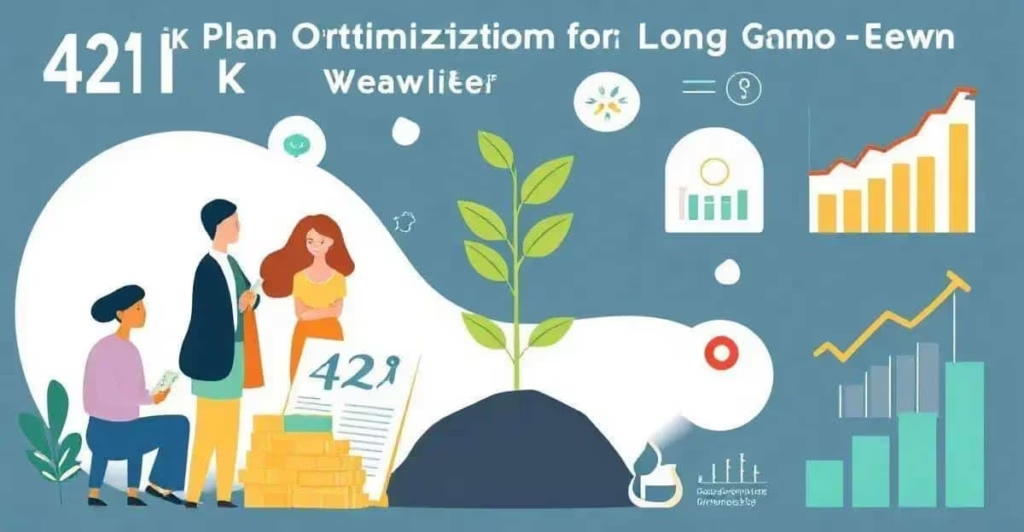Are you tired of living paycheck to paycheck, worried about your Retirement Myths could be holding you back? It’s time to debunk the myths and create a secure financial future.
With the average American living for 20-30 years in retirement, it’s crucial to have a solid understanding of what works and what doesn’t.
By exploring the truth behind common Myths, you’ll be better equipped to make informed decisions about your retirement planning.
Let’s get started and uncover the myths that are holding you back from achieving your retirement goals.

Debunking Common Retirement Myths
Many people believe they need a massive nest egg to live comfortably after retiring. However, with smart financial planning strategies, retirees can enjoy a secure lifestyle on a more modest income. Utilizing tax-advantaged accounts like 401(k)s and IRAs, along with creating multiple income streams, can significantly improve financial security.
Another misconception is that retirement marks the end of meaningful work. In reality, many retirees find fulfillment through part-time jobs or volunteering, contributing to society and enhancing their financial independence. Staying engaged in work or hobbies also promotes mental health and a sense of purpose during retirement years.
The myth that younger generations don’t need to worry about retirement is another falsehood that can hurt long-term financial health. Even millennials can benefit from early planning strategies that build wealth over time. Learning and applying planning tips for millennials early on prevents costly mistakes later.
By understanding these myths and avoiding planning mistakes, individuals can sidestep common pitfalls and adopt strategies that align with their long-term financial goals.
Retirement Myths Debunked: You Don’t Need a Huge Nest Egg
Many people mistakenly believe you need a massive nest egg to retire comfortably. This myth can cause unnecessary stress and delay your plans.
In reality, it’s not about the amount you have saved, but how you manage it. Strategic planning plays a crucial role in achieving a secure financial retirement.
By optimizing tax-advantaged accounts like IRAs and 401(k)s, you can make your savings work harder. Additionally, reducing living expenses, such as downsizing your home or relocating to a more affordable area, can significantly increase your financial flexibility.
With smart financial decisions, even a modest nest egg can be sufficient for a comfortable retirement. Prioritize wise investments, limit debt, and take full advantage of available resources, and you’ll be well on your way to a financially secure retirement.
Rethinking Retirement Planning
Traditional planning often assumes a fixed income, but dynamic strategies offer better outcomes. Prioritizing tax-efficient investing—such as maximizing contributions to the best accounts for tax savings—can increase financial flexibility. Consider diversifying with investments like real estate or dividend-paying stocks to generate additional income.
Early retirement planning is another powerful tool. By starting early, even millennials can benefit from compounded growth, creating a robust financial future. The key lies in adapting financial planning for retirement to evolving life circumstances and new economic realities.
Another effective method is to create a detailed goals planning framework. This involves setting realistic financial targets and regularly reviewing them to ensure progress. Using tools like a savings calculator helps individuals visualize how small, consistent actions today can lead to significant results in the future.
To rethink retirement planning effectively, consider alternative approaches, such as phased retirement. This concept allows individuals to gradually reduce working hours instead of fully retiring, creating a smoother financial transition. Additionally, creating an emergency fund to cover unexpected expenses ensures that retirement savings remain intact.
Finally, leveraging professional planning advice can help refine investment choices and tax strategies. Seeking guidance from financial planners experienced in retirement investment strategies provides tailored solutions for unique financial situations. Staying informed about market trends also improves decision-making.

How Much Do I Need to Save for Retirement? The Answer Is Not the Same for Everyone
One common question people have is, “How much do I need to save for retirement?” The answer, however, isn’t universal. It depends on your unique goals, lifestyle, and vision.
For millennials, the earlier you start, the more your savings will grow through compound interest. By starting small and contributing regularly, you can build a substantial retirement fund over time.
However, your required savings amount also depends on inflation, healthcare costs, and your goals. Do you want to travel? Pursue hobbies? These factors will affect how much you need to save each month.
Tailoring your plan to your needs will help you build a solid foundation for a secure and fulfilling retirement. The key is not just saving more, but saving smartly.
Understanding Retirement Income Sources
A sustainable retirement requires understanding diverse income streams. Social Security benefits, pensions, and investment returns form the foundation. Additionally, alternative sources like rental income or part-time work provide stability.
To avoid running out of money in retirement, diversifying income streams is crucial. Using a retirement savings calculator can help project future needs and guide better financial planning decisions. The goal is to build a resilient plan that minimizes reliance on any single source.
For self-employed individuals, financial planning includes leveraging specialized accounts like SEP IRAs or Solo 401(k)s. Tailored strategies for self-employed professionals can offer the flexibility to save more and reduce tax burdens. Exploring retirement planning for self-employed individuals empowers entrepreneurs to secure their futures without traditional employer-sponsored plans.
By carefully balancing income sources, retirees can create a robust plan that withstands market fluctuations and unexpected expenses. Additional income-generating strategies, such as consulting or freelancing, provide flexibility and enhance retirement income planning.
Additionally, managing investment strategies requires regular portfolio rebalancing to maintain a balanced risk level. This approach protects against losses while capitalizing on potential growth opportunities.
Diversification within a retirement portfolio is equally essential. Combining stocks, bonds, and real estate investments reduces overall risk. Exploring mutual funds and index funds tailored for retirees offers low-maintenance, long-term growth options.
Another often overlooked source of income is annuities, which provide guaranteed payments for life. Including annuities as part of a diversified retirement strategy ensures predictable income, especially for those concerned about market volatility.

Best Retirement Accounts for Tax Savings
Choosing the best retirement accounts for tax savings is a crucial part of financial planning. Traditional IRAs and 401(k)s are popular choices because they allow you to defer taxes on contributions, enabling your savings to grow without immediate tax burden.
Roth IRAs, on the other hand, involve post-tax contributions, but they allow for tax-free withdrawals during retirement. For those in their early careers, Roth IRAs can be especially beneficial since you may be in a lower tax bracket now compared to retirement.
Employer-sponsored retirement plans, like 401(k)s, often include matching contributions, which is essentially free money. Taking full advantage of this match can significantly boost your savings.
Be sure to choose the accounts that align with your financial situation. The right mix can help you minimize taxes while maximizing your retirement capital.
Common Myths About Social Security
One of the biggest retirement mistakes is believing that Social Security alone is insufficient. While it won’t fully replace pre-retirement income, it’s a vital component of a well-rounded strategy. Combining it with pensions and other investments creates a balanced financial plan.
Additionally, myths about Social Security dvantages often lead to confusion. For example, many assume benefits are fixed. In truth, they are adjusted for inflation to preserve purchasing power.
Another widespread myth is that once Social Security begins, no additional income can be earned. However, part-time work and other income-generating activities can supplement these benefits, improving retirement security.
It is also common to think that claiming benefits as early as possible is always the best choice. While early claims provide immediate access to funds, they reduce lifetime benefits. Understanding how to balance immediate needs with long-term gains is crucial.
Debunking these myths allows retirees to optimize benefits and explore how to retire comfortably on a fixed income. With proper financial planning, Social Security becomes a foundation rather than a limitation. Using resources like a retirement planning guide helps in making informed decisions.
Moreover, strategies for maximizing Social Security regulations include delaying claims to increase monthly payments and coordinating spousal benefits for married couples. Awareness of these options significantly enhances retirement security.
Understanding spousal and survivor benefits can also unlock additional income. Couples should explore how claiming strategies impact household income to ensure maximum long-term gains. Additionally, consulting with a retirement planner can clarify complex Social Security rules.
Financial Planning Strategies: Managing Risks and Preparing for the Unexpected
Retirement planning isn’t just about saving money—it’s also about managing risks and preparing for the unexpected. Unforeseen events like medical emergencies, job loss, or market downturns can derail even the best-laid plans.
Establishing an emergency fund is crucial to prepare for life’s curveballs. Ideally, this fund should cover three to six months of living expenses.
Diversifying your investments is another key strategy. This reduces the risk of your entire portfolio suffering from the poor performance of one asset. A mix of stocks, bonds, real estate, and other investments can offer more stability.
You should also consider insurance options like long-term care insurance or health insurance to protect your assets. By managing risks, you can ensure your retirement funds remain intact, regardless of what life throws at you.
The Truth About Retirement Age and Impact on Benefits
Determining the right retirement age is a personal decision influenced by health, career goals, and finances. While some dream of early retirement, understanding how to retire early on Social Security alone is complex.
Social Security regulations and changing pension plans impact benefit calculations. Staying informed and using tools like a retirement planning guide ensures better choices.
Planning for a later retirement can boost monthly benefits, providing additional security. By balancing retirement income planning with personal priorities, individuals can achieve a sustainable financial retirement.
Furthermore, myths about retirement age often lead to misconceptions about eligibility. It’s essential to differentiate between the minimum retirement age for Social Security and the age for full benefits to avoid costly errors in financial planning.
Another factor influencing retirement decisions is life expectancy. Understanding the trade-offs between retiring early and delaying retirement can guide smarter strategies. Utilizing a retirement savings calculator helps estimate the financial impact of different retirement ages.
Flexibility in retirement age planning also allows for better integration of pension plans and 401(k) withdrawals. Combining these income streams with proper timing creates a balanced and sustainable retirement income.
Additionally, part-time work after reaching retirement age can enhance financial security. Keeping health insurance and long-term care needs in mind is crucial for holistic planning.

Retirement Planning Strategies for a Secure Future
Effective retirement planning strategies blend diversified investments, tax advantages, and clear goals. Using tax-advantaged accounts like 401(k)s with employer matches maximizes savings. Retirement investment goals should include low-risk options for stability and higher-risk assets for growth.
Self-employed individuals face unique challenges. For them, tailored retirement planning for self-employed individuals—like SEP IRAs—offers flexible saving opportunities.
Additionally, exploring pension plans or other guaranteed income streams adds security. Tools like a retirement savings calculator provide valuable insights into how much to save for retirement based on lifestyle goals.
Comprehensive Wealth trajectory planning involves regular reassessments. Revisiting investment allocations, rebalancing portfolios, and reviewing retirement goals ensures alignment with current needs.
Another critical aspect is healthcare planning. Rising medical costs can significantly impact retirement fund. Including long-term care insurance and building a health expense fund are proactive ways to protect assets.
Finally, staying proactive with retirement planning tips helps adapt to changing markets and life stages. By integrating economic future plans with consistent adjustments, retirees can enjoy a financially secure and fulfilling retirement.
Proactive planning also includes contingency measures for economic downturns. Developing strategies for generating income during recessions, like gig economy work or consulting, safeguards financial stability.
Understanding how inflation erodes purchasing power is also key. Building inflation-resistant strategies—such as investing in Treasury Inflation-Protected Securities (TIPS)—can shield your nest egg. Consistent reviews of tax laws and updates in retirement planning regulations further ensure the best strategies are in place.
How to Retire Comfortably on a Fixed Income
Retiring on a fixed income doesn’t mean you have to live without comfort or enjoyment. Many retirees live comfortably with limited income, thanks to strategic planning and resource management.
Downsizing your home or moving to a less expensive area can significantly reduce your living expenses.
You can also diversify your income streams by renting out part of your home or taking on a part-time job. These additional income sources provide a financial buffer, giving you more flexibility to enjoy retirement.
By carefully managing your fixed income and making smart financial choices, you can ensure a comfortable and fulfilling retirement without the need for excessive savings
Retirement Planning for Self-Employed Individuals
Self-employed individuals face a unique set of challenges when it comes to retirement planning. Without an employer-sponsored retirement plan, it’s your responsibility to set up your own savings vehicles.
Solo 401(k)s, SEP IRAs, and SIMPLE IRAs are excellent options for self-employed individuals. These accounts allow you to save a significant portion of your income, while also benefiting from tax deductions.
A Solo 401(k) is especially powerful because it allows both employee and employer contributions, which increases your overall savings potential.
Building a retirement plan as a self-employed individual requires discipline and consistent savings, but with the right strategy, you can enjoy a financially secure retirement, just like any employee with a company-sponsored plan.
Conclusion
Debunking retirement myths is crucial for creating a secure Economic future. Understanding the truth behind misconceptions like needing a huge nest egg or relying solely on Social Security helps you make smarter decisions.
By rethinking your approach to retirement planning, such as exploring tax-efficient savings accounts or diversifying income sources, you can build a more resilient financial foundation. Proper planning will allow you to navigate retirement confidently.
Ultimately, planning for retirement is about understanding your unique goals and managing risks. By applying these strategies, you can ensure that your retirement is not only financially secure but also enjoyable. Stay informed, plan wisely, and take action today.
FAQ – Frequently Asked Questions about Retirement Planning
What are the most common retirement planning myths?
Some common retirement planning myths include the idea that retirees need to have a significant nest egg to maintain their lifestyle, that retirees are unable to work or contribute to society in any meaningful way, and that Social Security Incentives are limited or not eligible for other income sources.
How can I create a sustainable financial plan for retirement?
A sustainable financial plan for retirement involves prioritizing tax-advantaged accounts, taking advantage of employer matching contributions, and developing a diversified portfolio that includes alternative sources of income.
What are the benefits of rethinking retirement planning?
Rethinking retirement planning can help individuals create a more secure economic future by identifying and challenging unrealistic assumptions and misperceptions about retirement planning.
How can I understand retirement income sources?
Understanding retirement income sources involves recognizing the various streams of income that can support a retiree’s lifestyle, such as Social Security, pensions, and part-time work.
What are some common retirement myths about Social Security?
Some common myths about Social Security include the idea that benefits are limited or that recipients are not eligible for other income sources.
What are some retirement planning strategies for a secure future?
Retirement planning strategies for a secure future involve a combination of financial planning, goal-setting, and sustainable investing, including prioritizing tax-advantaged accounts, taking advantage of employer matching contributions, and developing a diversified portfolio.
Source: US News – Money | Related articles: Medium/ Quora




